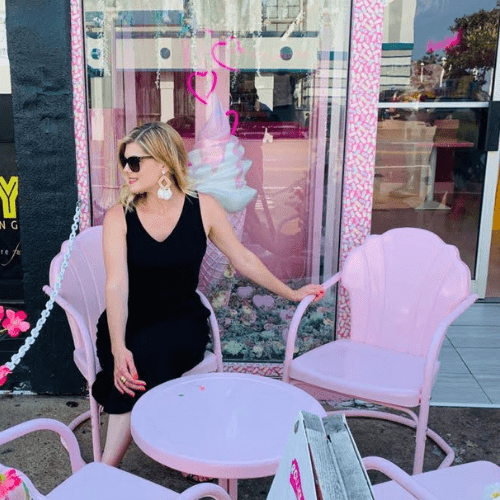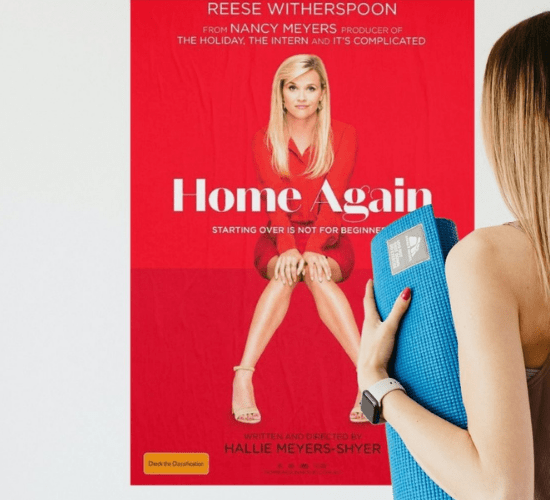"Be the heroine of your life, not the victim."
Nora ephron

INTRODUCTION
Sometimes I catch myself counting all the years I’ve maybe “lost”. I think, “Wow, that was 5, 6, 7 years ago.” I start to feel heavy about that. Like wow. All that time? When I think like that, it almost seems as if it’s taking forever for me to make progress or see my next dream come to life. Likewise, when you start thinking about all the years maybe you’ve lost, you may feel heavy or similar sentiments.
Now, I want you for a moment, to put things in perspective, think about all the movies you've seen with a lead female character. In the beginning, the scene opens and immediatelty you're following her storyline. She has a disappointment, maybe a groom unfairly dumps her, maybe even an epic failure that occurs.
Then, at some point- the storyline closes and more often than not, it’s like an unfinished story, or it seems like it’s over and the screen will fade to black
marquee
And then you see this main character, they look better. They’re in a totally new life space and the audience is ready to see, oh, this is a new scene. There’s like this other story that I’m gonna see. And just like that, we should be that forgiving, accepting, and open to whatever our new life looks like. The audience is ready for a new story. They’re rooting for that character Am I right? We’re rooting for that character to have a better life and have made peace with the past.

And you know, what if they bump into which usually happens in these things, they bump into that old character that hurt them. Or, somebody says “Didn’t you used to…?” And they can laugh it off and say, oh yeah, that was, that was in my, my, my younger days. But you’ll find in the movie that even though they dismissed that old chapter, that we, as the audience saw, and we were connected to that story, they eventually become reconnected to that story.
"Amazing, compelling quote from "Beautiful No Book."
sheri solata

Chapter
So I want you to think about that when you’re thinking about the storyline of your life, this, this chapter that was hurtful, this chapter that you, you didn’t make sense of, and you just had to move on, you know, the screen went to black and you had five years to make sense of it. And here we are at the next chapter. I want you to think about that time that seems wasted and I want you to just see it as it is, which is just this transition in your movie- the movie of your life.

I want you to accept that sometimes healing or trying to make sense of things that happened, that were important to you that were at one point the main storyline of your life- that that’s okay. That you loved it, that you were committed to it. It didn’t end the way you wanted it to, but just like the audience, I want you to be ready for something new for this next chapter.
Imagine an audience watching your life. They’re rooting for you. And they have made peace. They know what happened in that story. They’re rooting for you. They see that you got hurt, you were unfairly treated. You couldn’t make sense of it. You don’t have to write a single word in a screenplay to feel the emotion of this. You can, if you want, you can write everything down. You can publish it as an ebook have at it. But the sooner you can realize that the audience watching the movie of your life is rooting for you. And they understand the storyline. And they’re ready for that fade to black five years later, moment where you come out into your new chapter the sooner, you’ll start to live that way, and you’ll make peace with whatever the last chapter dealt you.

cut scenes
Now, there’s a chapter in these movies that people don’t see and it’s whatever work the character did to make peace with that chapter. Usually in the movies, they just dismiss it. Like I mentioned before, they dismiss it and they say, yeah, that was the old me.
Well, we’re not gonna do that with our healing chapter. We’re gonna actually come from a place of wholeness, authenticity, acceptance, maybe vulnerability, where somebody asks us, “Hey, whatever happened to …?” And you could say, “Oh, fill-in-blank, whatever reconceptualized thought you came up with about that experience, but it can’t be negative.
It cannot be your, your conclusion of that chapter, can’t be negative. Why can’t it be negative? Well, we’re gonna get into that.

CONCLUSION
So there’s never this former life and then five years pass, and there’s like this totally different life. It’s all one life. And the audience knows that. I think writers of screenplays know that
“The sooner you and I accept that the sooner we’re
allowed to have a five year gap.”
allowed to have a five year gap.”
We’re allowed to have a six year gap. We’re we make peace with a story that was hurtful, or we thought was gonna end better. Right? We’re allowed to have that five, seven year, even 10 year gap. The audience doesn’t know. They’re like, “Okay, 10 years passed. Let’s go. What’s next? Snap, snap.” We’re ready for the next life event. And we and the audience are also ready to make peace with the past.
We didn’t have to do that. The character in the story did.


